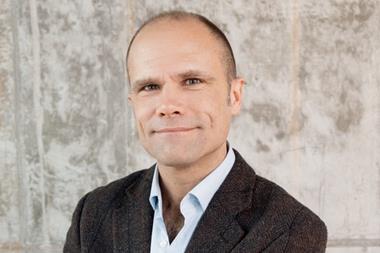Nine out of 10 transport infrastructure projects run over budget.
Cost escalation ranges from 20% for roads to 45% for rail. The average for tunnels and bridges is 34%, but subject to more extreme variation.
'Cost estimates used in decision-making for transport infrastructure development are systematically and significantly misleading. Large cost escalations combined with large standard deviations translate into large financial risks. However, such risks are typically ignored or underplayed in decision-making, to the detriment of social and economic welfare.'
So states a team led by Professor Bent Flyvbjerg from the Department of Development and Planning at Denmark's Aalborg University, which examined the cost results of 258 transport infrastructure projects worth $90bn, in 20 countries. They published the results of their study in How common and how large are cost overruns in transport infrastructure projects?
in Transport Reviews 2003, and a second paper in the same journal in January 2004
The Channel Tunnel, says Flyvbjerg, is a clear example of the phenomenon.
When it was finally opened in 1994, the tunnel was 80% over budget, and subsequent traffic 50-80% below forecast. From the first day, Eurotunnel Group, the Anglo-French consortium that owns and operates the tunnel and its railway system, was locked into a debt trap from which it has never escaped.
Shareholder value in Eurotunnel has been severely compromised. It has never recovered from its peak in 1989 and fell throughout the bull market of the late 1990s. Five years ago, it had reached around 100p; by the beginning of May 2004, it stood below 30p. In the light of these figures there are certainly some questions about who was looking after the shareholders' interests. According to Michael Grant, group treasurer for Eurotunnel in 1997 writing in Japan Railway & Transport Review, the critical period was in 1986, when the founding construction companies and five banks negotiated among themselves the construction contract and details of the credit facilities.
Eurotunnel's management has been regularly obliged to restructure the debt and take other remedial measures. Not surprisingly, though, these are not the same people who took the decisions in 1986. Those were not the ones who had to face the shareholder putsch at the company's annual general meeting on 7 April 2004. Successive boards of directors have inherited the implications of the original under-estimation of costs and over-optimism about traffic.
Risk management
Whatever faults there were in safeguarding shareholders' interests at the time of construction, today the board of Eurotunnel aims to adopt the best features of UK and French corporate governance regimes, and states in the annual report for 2003 that the group complies with both the UK Combined Code and with the main recommendations of the Vienot and Bouton committees in France.
Under the heading of internal control, Eurotunnel discloses more about its risk management procedures than many. 'A continuous process of risk identification, assessment, prevention and control is in place under the responsibility of the corporate risk management. The corporate risk review is formally presented to the audit committee at least once a year. This presentation is completed by a report from the internal audit department covering the effectiveness of the corporate risk management process itself and the measures in place to manage the major risks. The results of interim review are presented to the audit committee in the event of major new risks emerging or of significant changes in those already identified.'
Although it is unstated, safety must be Eurotunnel's most significant non-financial risk, as it is for any public transport business. The company says that, 'Everything we do must contribute to ensuring or enhancing the safety of people and property. Safety is one of the criteria on which employees' individual performance is assessed. The company provides job-specific safety training in order to meet its total safety objective.'
A fire in November 1996 caused a number of people to suffer from smoke inhalation and led to the suspension of freight services for many months.
Since then, concerns about rail safety have been focused more on land-based rail operations. The Anglo-French Channel Tunnel Safety Authority, created under the 1986 Treaty of Canterbury that authorised construction of the tunnel, indicates a programme of continuing improvement, but no exceptional concerns in its most recently published annual report to 31 March 2003.
Shareholder putsch
Nevertheless, on 7 April 2004, individual French shareholders revolted.
At the annual general meeting, they succeeded in dismissing the entire Eurotunnel board.
The action group of shareholders involved, Adacte, has been campaigning for improvements to Eurotunnel's position since 1995, when, just a year after the tunnel opened, the company temporarily suspended interest payments on its debt. Adacte's campaign gathered force in October 2003 when Nicolas Miguet, variously described as a publisher, an unsuccessful French presidential candidate, 'very sulphurous and very extreme right,' and as a small scale Berlusconi, associated himself with the group and began an energetic campaign of gathering together proxies from individual shareholders in France.
Having failed in an earlier resolution to unseat the Eurotunnel board, Adacte found itself in a much stronger position by the time of the annual general meeting. Miguet held proxies for nearly 18% of Eurotunnel's share capital. It turned out to be enough. For the first time in French corporate history, private shareholders ousted the entire board of a major company.
The day following the AGM, the company named six new directors, all French.
They included an Adacte representative in the shape of its chairman Joseph Gouranton, and a new chairman and chief executive. On 21 April, a delegation from Eurotunnel met Nicholas Sarkozy, the French minister for the Economy, Finance and Industry. During that meeting, the new management outlined the strategy that it plans to have put into place by the end of July.
Adacte has called for a number of changes at Eurotunnel, but underlying all of them is a belief that the governments of France and Britain have a responsibility for the position of Eurotunnel and thus for its shareholders' woes, in that they forced a public service to be financed by private investors.
Structurally, however, there is little room for them to manoeuvre. The Treaty of Canterbury, which authorised construction of the tunnel, rules out any public funding as well as insolvency or administration.
The natives are restless
Most institutional shareholders have long since sold their holdings in Eurotunnel, and in any case they do not want to attack company management in public if it can be avoided: it is not good for the share price. However, UK fund managers are now demonstrably more active shareholders than they were in 2000 when the UK government commissioned Paul Myners to investigate the role of institutional investors.
In his report, published in 2001, he stated: 'The review is clear that fund managers remain unnecessarily reluctant to take an activist stance in relation to corporate underperformance, even where this would be in their clients' financial interests.'
According to Anita Skipper, head of corporate governance at Morley Asset Management, a number of factors contribute to increased institutional investor activism. One of them is that the Government threatened to impose duties in the wake of the Myners report.
To avoid legislated duties, the Institutional Shareholders' Committee (ISC), representing virtually all UK institutional investors, set out a statement of best practice governing their responsibilities in relation to the companies in which they invest. The government responded by agreeing to defer legislation for two years to examine the extent of behavioural change.
The ISC statement calls on institutions to monitor the performance of companies in which they invest with the aim of intervening in time to prevent destruction of value. Shareholders are urged to vote against boards that persistently ignore their concerns.
Skipper says that institutional shareholders prefer to work with the management to create the climate for change, so that even if a vote of the shareholders is required, it is uncontentious. "If we take a stand in public, it is because the negotiations behind the scenes aren't working or else there is a reason why the institutional investor wants to come out."
She says that the primary governance issues that concern Morley are board structure and composition, rather than executive remuneration, although that can be indicative of other things about the way the company is run.
"We make sure that these are right and that the internal controls are robust. In terms of internal controls, we are basically interested in how the audit committee functions. We like to see audit committee reports and we are getting more of them, so we can see that the committee is covering what we want them to cover. "
Skipper adds that Morley looks at all the types of risk that a business faces: 'They can all result in our losing money.'
When it comes to the risks of investing in companies undertaking major road, rail and fixed transport link projects, Flyvbjerg and his team have some advice. "For all three project types, the evidence shows that it is sound advice for policy and decision-makers as well as investors, bankers, media and the public to take any estimate of construction costs with a grain of salt, and especially for rail projects and fixed links."
Lee Coppack is a risk management and insurance writer and analyst. She is also editor of Strategic Risk's sister publication, Catastrophe Risk Management.



















